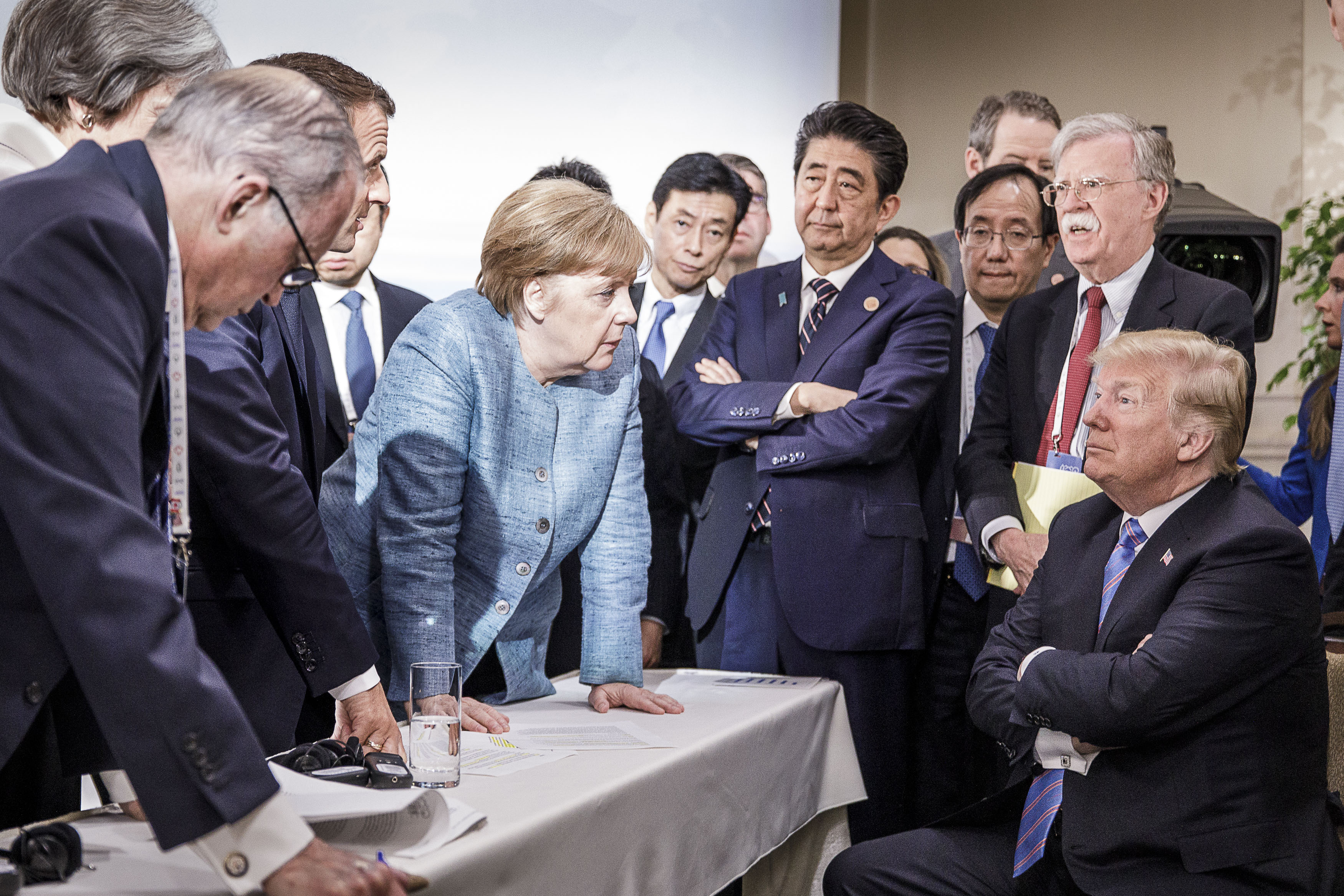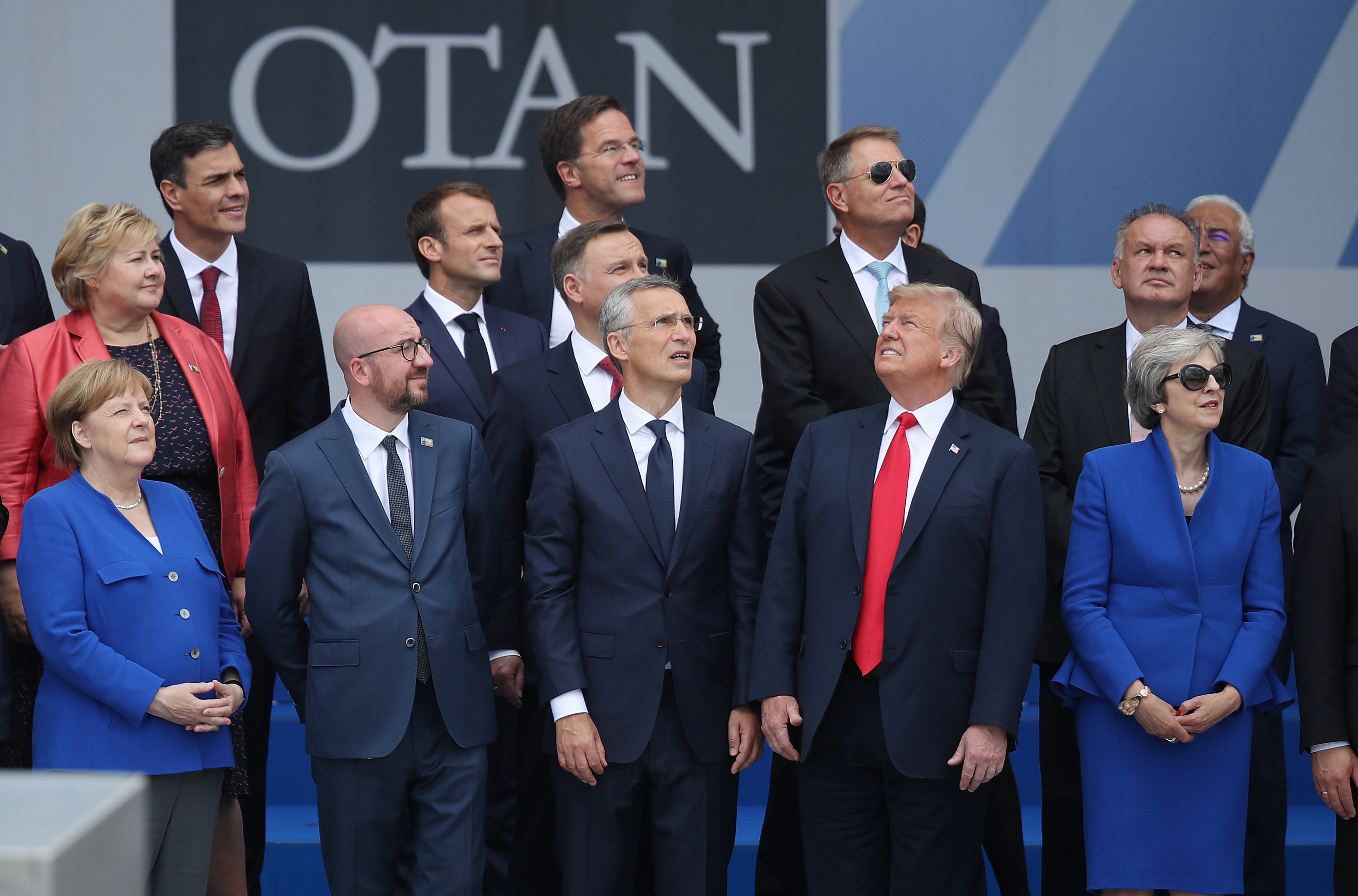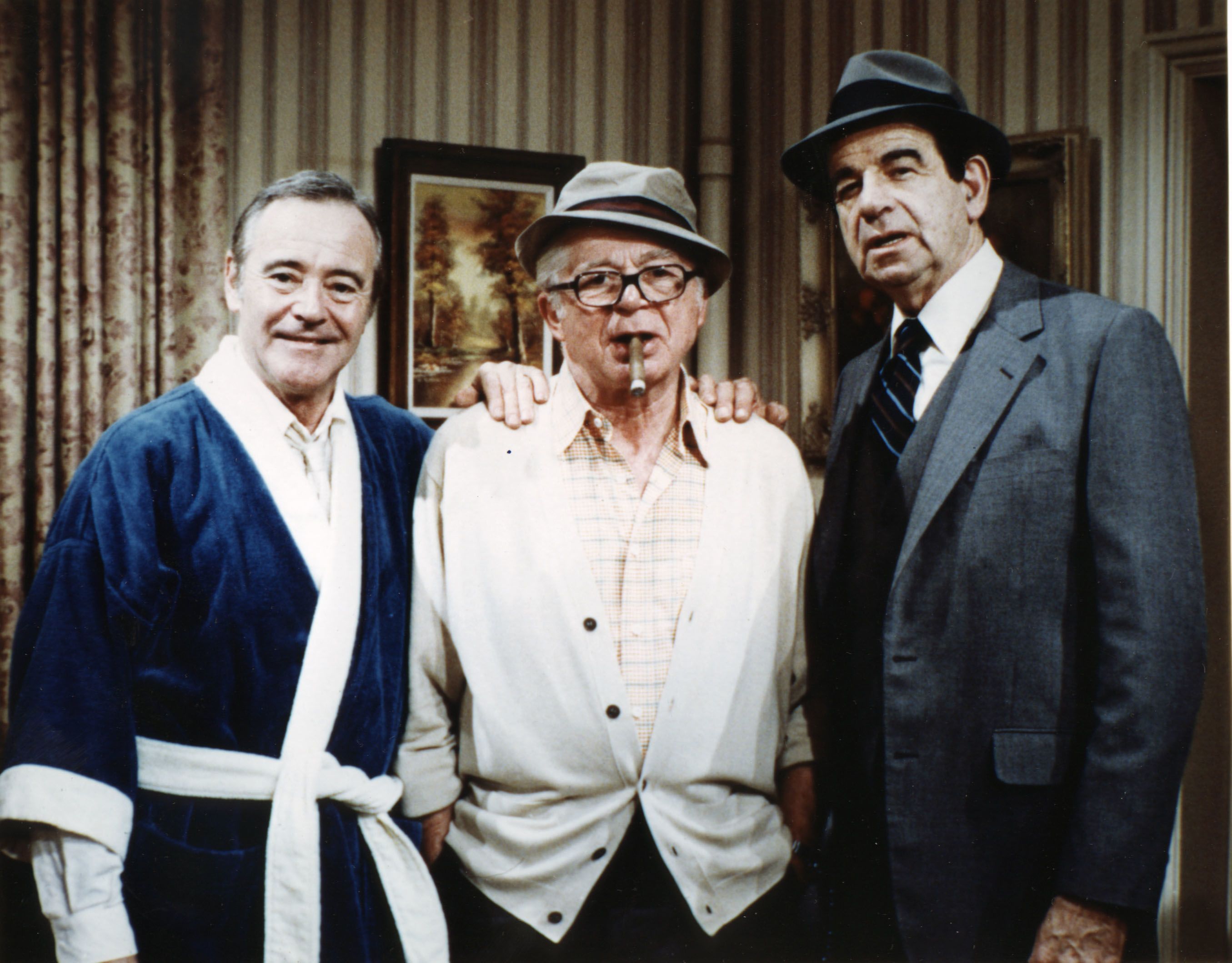When the picture emerged from the G7 summit last month of world leaders standing around Donald Trump, it was generally agreed that this perfectly framed shot resembled a Renaissance painting in its study of character.
But, for some us, it resembled the work of a great 20th century artist, an artist who would have embraced Trump as one of his go-to characters. He would have seen the potential in this goon, a hustler on the make who is always trying to stay one step ahead of his past.

As Trump stared defiantly at Angela Merkel, Shinzo Abe, Emmanuel Macron and the rest, it looked as if this was a still from a Billy Wilder film with Trump as the recalcitrant delinquent at the centre of every frustration. Even Wilder’s most idealistic heroes, one critic wrote, “are lying to someone”. Trump is not an idealistic hero and he is essentially always lying to everyone.
Trump is a classic figure drawn from the Great American Playbook as imagined by giants like Wilder and Walter Matthau.
When the president of the United States travelled across Europe, we witnessed this as he pitched up in Helsinki and blundered through his joint press conference with Vladimir Putin. This performance seemed designed solely to please the man standing beside him, before he returned to Washington and provided the impossible clarification, as if the worst man in the world was now starring in the scariest screwball comedy ever made.

But Trump the goon must be wondering how he got himself into this mess. How did this blag which was his run for president – this attempt at enrichment which may or may not still succeed – put him in this position where everything was at stake?
Trump is a delinquent who somehow ended up as president of the United States and while his triumph can be explained by factors he tapped into and exploited, his story from here on in depends on what he can do to escape his past.
Matthau’s characters always had the street smarts which allowed him to stay one step ahead, but Trump’s correction when he returned to Washington reveals that he is struggling to keep out in front of the chasing pack while placating the other forces he must accommodate in this story.
Wilder would have enjoyed filming Trump’s infantile vanity, but the screwball comedy would have come alive when Trump stood beside the Russian president, and for whatever reason – maybe because he actually believed it – found himself taking the side of Putin.
Who knows what Russia has on Trump, but Trump behaved in Putin’s company as any heavily compromised man would while standing across from a the head of state known for its ability to gather compromising material.

Russia might not have anything on Trump, but Trump behaves as if they do and nothing else really matters.
The idea that Trump is compromised by his associations with Russia, which may or not include collusion, is now the most plausible option. After Helsinki, you’d have to be a conspiracy theorist to believe anything else.
We like to say that politics now demands the skills of a great actor, but Trump, instead, has made politics about possessing the skills of a great reality TV star and there are moments when the show isn’t scripted, when he looks ill-equipped for the contest he entered to win, or at least to enrich himself before it took off in ways he couldn’t have imagined.
In The Fortune Cookie, Matthau plays a lawyer known as ‘Whiplash Willie’ who persuades Lemmon’s character to make a compensation claim after he finds himself at the bottom of a scrimmage while photographing an American Football game. Trump’s life could be said to be one long bogus compo claim and it was no surprise that his Brexit advice to Theresa May was to sue the EU. His presidency has been an exercise in whiplash diplomacy and he might also agree with Whiplash Willie when he describes Abraham Lincoln as a “great president, lousy lawyer”.

Trump, like Matthau in The Fortune Cookie, has convinced a gullible client to take him on (Jack Lemmon/The people of America) and now must stay one step ahead of the investigators.
Of course, none of this damages Trump with his fabled base because as long as he still hates what they hate, he’ll be OK.
Trump leads their tribe and like football supporters who overlook, say, the racism of their most important player if he continues to score goals, Trump’s base are prepared to overlook some irregularities in certain areas of his life once he remains true to his core values, like the racism.
The forces of the state he has undermined by taking Russia’s side are seen as the enemy by many of them anyway. While he remains strong on demonising the most vulnerable, they won’t care what he says when touring the world about Brexit or Boris Johnson or Theresa May. They won’t care about tax returns or collusion or what the Russians might have on him once he remains unimpeachable in his hatreds.
When Ronald Reagan was president, he would occasionally confuse the films he had starred in with real life. How quaint it seems now when Trump confuses the movie playing in his head with real life and then weaponises it.
“You can put that in,” he said when he issued his clarification based on his misspoken word, when he said ‘would’ instead of ‘wouldn’t’. In that moment, he was betraying his roots, in that instance he was the hustler he has always been, getting an item placed on Page Six of the Daily Post and giving the reporter whatever was needed to make it sing.
This was now his story and, after a lifetime on the make, maybe he even believed it, but every possible alternative seemed more probable. And this is Trump’s growing problem as the net closes in. How can you believe a man who is always lying to someone?









































